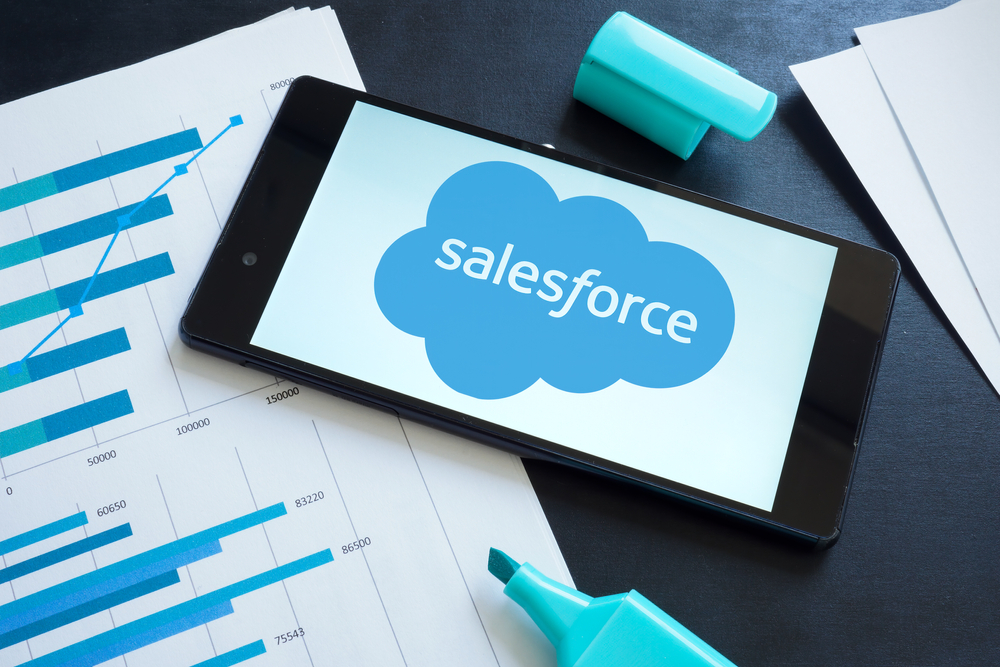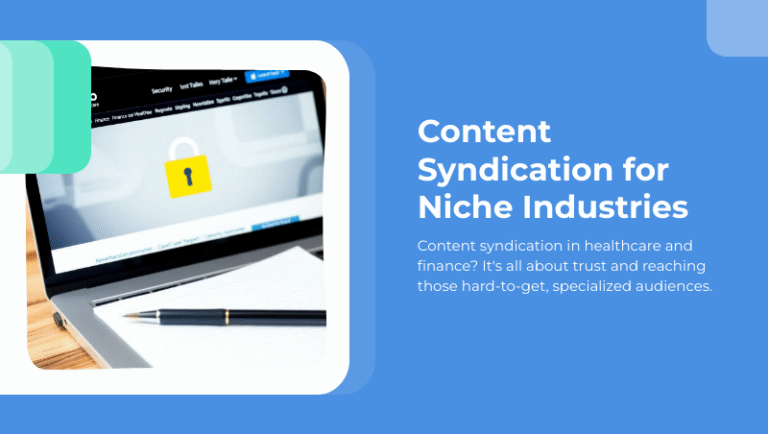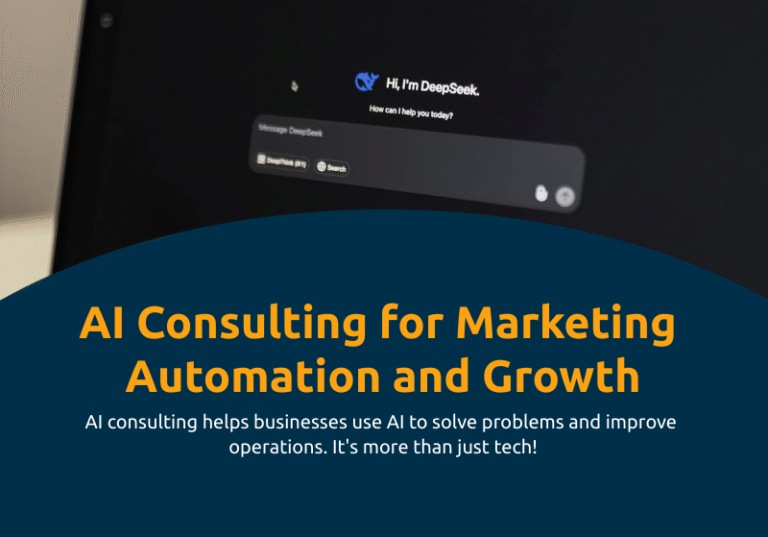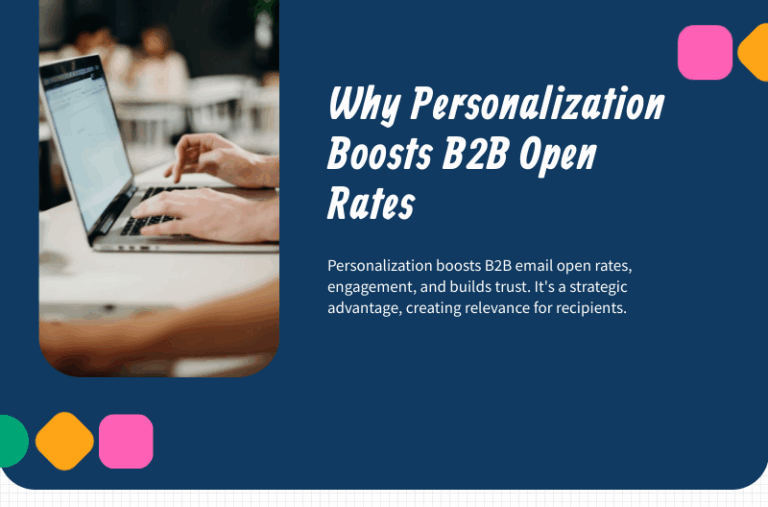Marketing Cloud consulting has emerged as a crucial asset for businesses striving to thrive in an increasingly digital and customer-focused world. As companies aim to build stronger connections with their audiences, the tools and expertise provided by Marketing Cloud platforms offer unparalleled opportunities for creating personalized, data-driven strategies. With consultants specializing in these platforms, organizations can unlock their full potential, streamline operations, and deliver meaningful customer experiences.
What Marketing Cloud Consulting Actually Is
Marketing Cloud platforms, like Salesforce Marketing Cloud and Adobe Marketing Cloud, serve as comprehensive systems for managing multi-channel marketing efforts. They integrate tools for email marketing, social media campaigns, customer journey mapping, data analytics, and more. While these platforms are powerful, their complexity often requires specialized knowledge to use them effectively. This is where Marketing Cloud consultants come in.
These professionals assess a company’s marketing needs, design tailored solutions, and guide the implementation process to ensure seamless integration into existing workflows. From configuring automation to analyzing campaign performance, their expertise transforms these platforms from static tools into dynamic engines for business growth.
The Growing Importance of Marketing Cloud Solutions
The marketing landscape has undergone a massive shift, with customers now expecting personalized interactions across every touchpoint. Companies that fail to meet these expectations risk losing relevance. Marketing Cloud platforms, with their ability to centralize data and enable customized outreach, address this challenge directly.
Consulting services enhance this process by:
- Aligning platform capabilities with specific business goals
- Optimizing campaign strategies to maximize ROI
- Simplifying complex workflows through automation and data integration
This dual approach—powerful technology combined with expert guidance—creates a competitive advantage for businesses in virtually any industry.
Key Reasons Companies Turn to Marketing Cloud Consultants
- Tackling Underutilized Tools Many businesses invest in Marketing Cloud platforms but struggle to use them effectively. Consultants help uncover missed opportunities by auditing current setups and suggesting improvements that align with marketing objectives.
- Navigating Data Overload With vast amounts of customer data flowing into businesses, it’s easy to become overwhelmed. Consultants specialize in organizing, analyzing, and leveraging this data to create actionable insights that drive marketing success.
- Customizing Solutions for Unique Needs No two businesses are the same, and a one-size-fits-all approach rarely works. Consultants design customized strategies that reflect the unique characteristics and goals of each organization, ensuring a better fit and higher ROI.
The Outcomes of a Strong Marketing Cloud Strategy
When properly implemented, Marketing Cloud platforms offer measurable results that impact both short-term campaigns and long-term growth. Companies leveraging the expertise of consultants can expect benefits such as:
- Enhanced Customer Relationships: Personalization capabilities help businesses build trust and loyalty.
- Higher Operational Efficiency: Automation reduces manual effort, freeing teams to focus on strategy and innovation.
- Improved Metrics: From email open rates to conversion rates, optimized campaigns consistently perform better.
Setting the Stage for the Rest of the Discussion
The role of Marketing Cloud consulting is not just about making tools work but about aligning them with the broader goals of a business. It’s about transforming raw potential into actionable strategies that drive measurable success. As businesses continue to navigate a complex and competitive digital landscape, Marketing Cloud consulting will remain a critical driver of growth and innovation.
With this foundation established, companies can explore the specifics of choosing the right consultant, implementing their strategies effectively, and leveraging case studies to inspire their next steps. Whether a small startup or a global enterprise, Marketing Cloud consulting holds the key to unlocking sustainable marketing success.
Understanding Marketing Cloud Platforms
What Businesses Should Know About Marketing Cloud Platforms
Marketing Cloud platforms are reshaping how businesses manage and execute their marketing strategies. These sophisticated tools enable companies to centralize their efforts, optimize customer engagement, and make data-driven decisions that yield measurable results. However, understanding the capabilities of these platforms and how they differ is essential for leveraging their full potential.
Exploring the Top Marketing Cloud Platforms
Several major players dominate the Marketing Cloud space, each offering unique features and capabilities that cater to varying business needs. Some of the most prominent platforms include:
- Salesforce Marketing Cloud
- Known for its robust suite of tools, Salesforce Marketing Cloud is designed to support businesses in creating personalized customer experiences. Key features include email marketing, customer journey mapping, social media management, and data analytics. The platform’s scalability makes it a top choice for companies of all sizes.
- Adobe Marketing Cloud
- Adobe’s solution emphasizes seamless integration with creative tools, enabling businesses to craft visually compelling campaigns. It excels in areas like content management, cross-channel campaign execution, and audience segmentation. Adobe Marketing Cloud is particularly favored by companies with a strong focus on design-driven marketing.
- Oracle Marketing Cloud
- Oracle’s platform is tailored for data-driven marketers, offering advanced tools for segmentation, lead management, and customer analytics. It provides powerful insights into customer behavior, helping businesses fine-tune their strategies for maximum impact.

Features That Make Marketing Cloud Platforms Stand Out
Marketing Cloud platforms provide a range of features designed to simplify and enhance modern marketing efforts. Understanding these capabilities can help businesses determine which platform aligns best with their goals:
- Multi-Channel Campaign Management
- Businesses can orchestrate campaigns across email, social media, mobile apps, and more from a single dashboard. This ensures consistency in messaging and branding while reducing the complexity of managing multiple channels.
- Customer Journey Mapping
- These tools allow businesses to visualize and optimize the paths customers take from initial interaction to conversion. By identifying touchpoints that need improvement, companies can enhance the overall customer experience.
- Data Integration and Analytics
- Marketing Cloud platforms centralize customer data, providing a unified view of interactions and behaviors. Advanced analytics tools then transform this data into actionable insights, enabling businesses to make informed decisions.
- Personalization and Automation
- By leveraging AI and machine learning, these platforms can deliver personalized content at scale. Automation features handle repetitive tasks like email scheduling and campaign reporting, freeing up time for strategic initiatives.
The Advantages of Using a Marketing Cloud Platform
Adopting a Marketing Cloud platform can lead to significant improvements in both efficiency and effectiveness. Some of the key benefits include:
- Enhanced Customer Engagement
- Personalized marketing campaigns resonate more with audiences, fostering stronger connections and loyalty. This leads to higher conversion rates and increased customer retention.
- Improved ROI
- By optimizing campaigns and targeting the right audience, businesses can achieve better results with less waste, improving their overall marketing return on investment.
- Scalability for Growing Businesses
- Marketing Cloud platforms are designed to grow alongside businesses. Whether launching new products or expanding into new markets, these tools can adapt to evolving needs.
- Streamlined Operations
- Centralized dashboards and automated processes reduce the manual effort involved in managing campaigns, allowing teams to focus on creative and strategic work.
Choosing the Right Platform for Your Business
Selecting the best Marketing Cloud platform depends on various factors, including business size, industry, and specific marketing goals. Small businesses might prioritize affordability and ease of use, while larger organizations could benefit from advanced features like AI-driven analytics and cross-channel orchestration. Consulting with a Marketing Cloud expert can provide valuable guidance in making the right choice.
A Snapshot Comparison of Leading Platforms
| Platform | Strengths | Best For |
| Salesforce Marketing Cloud | Personalization, scalability | Businesses of all sizes |
| Adobe Marketing Cloud | Creative tools, design integration | Design-focused campaigns |
| Oracle Marketing Cloud | Data analytics, segmentation | Data-driven marketing |
Understanding the capabilities and advantages of these platforms is the first step toward transforming marketing efforts into a streamlined, data-informed, and highly effective process. By selecting the right tools and leveraging them strategically, businesses can unlock new opportunities for growth and customer engagement.
The Role of a Marketing Consultant
Marketing Cloud platforms have become essential tools for managing modern marketing strategies, but their complexity can make them challenging to use effectively. That’s where Marketing Cloud consultants come in. These professionals bridge the gap between a business’s marketing needs and the platform’s technical capabilities, ensuring companies maximize their investment while achieving strategic goals.
What Marketing Cloud Consultants Do
Marketing Cloud consultants play a multifaceted role in helping businesses navigate their marketing platforms. Their expertise extends beyond simply setting up tools; they tailor strategies to align with a company’s unique objectives. Key responsibilities of a consultant include:
- Assessing Business Needs Consultants start by conducting a detailed analysis of a business’s marketing goals, pain points, and current processes. This helps them identify how a Marketing Cloud platform can be optimized to address specific challenges.
- Designing Tailored Solutions Based on the assessment, consultants design solutions that leverage the platform’s features to meet the company’s needs. Whether it’s creating personalized customer journeys or integrating data sources, their work ensures the platform aligns with the organization’s strategy.
- Implementing and Integrating Platforms Implementation involves configuring the platform, setting up automations, and integrating it with existing systems. Consultants handle this technical work to ensure a seamless transition with minimal disruption to day-to-day operations.
- Providing Training and Support A critical aspect of a consultant’s role is empowering internal teams to use the platform effectively. Through hands-on training sessions and ongoing support, they help businesses become self-sufficient in managing their marketing efforts.
The Skills That Set Marketing Cloud Consultants Apart
Effective Marketing Cloud consultants combine technical expertise with strategic thinking. Their skill sets typically include:
- Deep Knowledge of Marketing Cloud Platforms Consultants are experts in platforms like Salesforce Marketing Cloud, Adobe Marketing Cloud, and Oracle Marketing Cloud. They understand the nuances of each tool and how to maximize their functionality.
- Data Management and Analytics Proficiency Consultants know how to collect, organize, and analyze data to create actionable insights. This helps businesses make data-driven decisions that improve campaign performance.
- Customer-Centric Strategy Development With a focus on personalization, consultants design campaigns that resonate with target audiences, improving engagement and conversion rates.
- Strong Communication and Project Management Skills Consultants often act as a bridge between technical teams and marketing departments. Their ability to communicate clearly and manage projects ensures everyone is aligned throughout the process.
Why Businesses Rely on Marketing Cloud Consultants
The value of a Marketing Cloud consultant lies in their ability to optimize complex tools and create meaningful results. Here are some of the most common reasons businesses turn to these experts:
- Maximizing Platform Potential Without proper guidance, businesses often underutilize the features of their Marketing Cloud platform. Consultants ensure that every tool is leveraged to its fullest extent, increasing efficiency and ROI.
- Streamlining Marketing Operations From automating repetitive tasks to integrating disparate systems, consultants simplify processes that would otherwise consume significant time and resources.
- Achieving Strategic Alignment Marketing Cloud consultants ensure that campaigns are not only creative but also aligned with broader business objectives. This alignment leads to measurable results that contribute to long-term success.

Working with a Marketing Cloud consultant offers tangible benefits that impact both short-term performance and long-term growth. Businesses can expect:
The Value Marketing Cloud Consultants Bring
- Faster Implementation Consultants accelerate the setup and integration process, enabling companies to start using their platform more quickly.
- Improved Campaign Outcomes By optimizing tools and strategies, consultants help businesses achieve better results, from increased engagement to higher conversion rates.
- Sustainable Growth Consultants design scalable solutions that grow with the business, ensuring continued success as marketing needs evolve.
Partnering With the Right Consultant
Finding the right Marketing Cloud consultant is key to achieving success. Businesses should evaluate candidates based on their experience, industry knowledge, and proven track record. Clear communication and a collaborative approach are also essential for ensuring that the partnership is productive and effective.
By working with a skilled consultant, companies can unlock the full potential of their Marketing Cloud platform, transforming their marketing efforts into a streamlined, data-driven operation that delivers real results. For businesses looking to stay competitive, investing in Marketing Cloud consulting is a strategic move that pays dividends in the long run.
Key Considerations for Businesses
What Businesses Should Keep in Mind Before Choosing a Marketing Cloud Consultant
Investing in a Marketing Cloud consultant can transform a business’s marketing operations, but finding the right fit requires careful consideration. To ensure the collaboration delivers maximum value, businesses need to evaluate their own needs, the consultant’s expertise, and the overall scope of the project. By focusing on the following factors, organizations can make informed decisions and set the stage for successful outcomes.
Knowing When It Is Time to Bring in a Consultant
Not all businesses immediately recognize when they need a Marketing Cloud consultant. However, there are clear signs that indicate it might be time to seek professional guidance:
- Underutilized Tools
- Many companies invest in Marketing Cloud platforms but fail to fully leverage their features. If the platform feels overly complex or underwhelming, a consultant can provide clarity and solutions.
- Challenges in Campaign Execution
- Struggling to execute multi-channel campaigns or personalize marketing efforts is a strong indicator that expert support is needed.
- Data Overload
- If managing and analyzing customer data feels overwhelming, a consultant can streamline processes and provide actionable insights.
- Growth or Scaling Needs
- Rapid business expansion often necessitates scalable marketing solutions, which consultants are well-equipped to deliver.
What to Look for in a Marketing Cloud Consultant
Finding the right consultant requires evaluating a combination of skills, experience, and approach. Here are the most critical factors to consider:
- Experience and Expertise
- Check for a proven track record of successful implementations, particularly in your industry.
- Look for certifications or qualifications in specific Marketing Cloud platforms like Salesforce, Adobe, or Oracle.
- Comprehensive Services
- Ensure the consultant offers a wide range of services, from platform implementation to ongoing support and training.
- Industry Knowledge
- A consultant with experience in your industry will better understand your unique challenges and opportunities.
- Strong Communication Skills
- Look for someone who can clearly explain technical concepts and collaborate effectively with your internal team.

Collaborating for a Smooth Implementation Process
For the partnership to be effective, businesses need to establish clear goals and foster open communication throughout the project. Here’s how to ensure a seamless implementation:
Steps for a Successful Collaboration
| Step | Action |
| Define Objectives | Set specific, measurable goals to guide the consultant’s work. |
| Provide Access | Share necessary data and tools to allow for smooth integration. |
| Encourage Team Involvement | Ensure internal teams are aligned with the consultant’s strategy. |
| Establish Milestones | Break the project into manageable phases with clear deliverables. |
| Monitor Progress | Regularly review outcomes to ensure the project stays on track. |
Questions to Ask During the Selection Process
To make the best choice, businesses should ask potential consultants targeted questions. These queries can reveal the consultant’s expertise, working style, and suitability for the project:
- Experience-Related Questions
- Can you share examples of similar projects you’ve worked on?
- What industries do you have the most experience in?
- Technical Knowledge
- How familiar are you with our specific Marketing Cloud platform?
- What tools and processes do you use to ensure a successful implementation?
- Project Approach
- How do you handle unexpected challenges or setbacks?
- How do you ensure knowledge transfer to internal teams?
- Metrics for Success
- How do you measure the success of your work?
- What benchmarks should we expect to achieve with your guidance?
Why Setting Expectations Early Matters
A successful collaboration hinges on aligning expectations from the outset. Businesses should work with consultants to define:
- Project Scope
- Clearly outline which tasks and goals fall under the consultant’s responsibility.
- Timeline
- Agree on realistic deadlines to avoid delays and miscommunication.
- Budget
- Establish a transparent budget to prevent unexpected expenses.
Making the Right Choice for Long-Term Success
The decision to hire a Marketing Cloud consultant is a significant investment in a business’s marketing future. By identifying specific needs, evaluating candidates thoroughly, and fostering a collaborative relationship, organizations can ensure they achieve meaningful results. This approach not only maximizes the value of the consultant’s expertise but also positions the company for sustained growth and innovation.
Case Studies: Success Stories in Marketing Cloud Consulting
How Marketing Cloud Consulting Transforms Businesses
Real-world examples often provide the best evidence of how Marketing Cloud consulting can drive success. By examining the strategies and outcomes achieved by businesses in various industries, it becomes clear how impactful these services can be. Below are two compelling case studies that showcase the power of Marketing Cloud consulting.
Improving Customer Engagement for a Retail Brand
A prominent multi-brand retailer faced significant challenges in managing customer data and marketing campaigns across its diverse product lines and sales channels. Their existing marketing tools were disjointed, leading to inefficiencies and missed opportunities for personalized engagement.
The Problem
- Lack of centralized customer data
- Difficulty in managing campaigns across email, social media, and mobile platforms
- Low engagement rates due to generic, untargeted messaging
The Solution
The retailer partnered with a Marketing Cloud consultant to design and implement a tailored solution using Salesforce Marketing Cloud. Key steps included:
- Centralizing Customer Data: Integrating data from online and in-store purchases to create a unified customer view.
- Automating Campaigns: Setting up automated workflows for email, SMS, and social media outreach.
- Personalizing Content: Using customer insights to tailor messages to individual preferences and purchase history.
The Results
The impact of these changes was immediate and measurable:
- 35% increase in email open rates
- 20% boost in sales driven by personalized campaigns
- Significant reduction in manual marketing efforts, freeing up resources for strategic initiatives
| Metric | Before Consulting | After Consulting |
| Email Open Rates | 15% | 35% |
| Conversion Rates | 3% | 8% |
| Campaign Management Time | High | Reduced by 50% |

Scaling Marketing Operations for a Tech Company
A growing technology company faced challenges in scaling its marketing operations to match its rapid expansion. With a small marketing team, they struggled to keep up with the demand for consistent, high-quality campaigns.
The Problem
- Limited internal resources to execute campaigns
- Lack of advanced segmentation and targeting capabilities
- Inconsistent messaging across customer touchpoints
The Solution
The company engaged a Marketing Cloud consultant to enhance their operations using Adobe Marketing Cloud. The consultant’s approach included:
- Implementing Automation: Developing automated customer journeys for nurturing leads and engaging existing customers.
- Advanced Segmentation: Creating detailed customer segments based on behavior, demographics, and purchase patterns.
- Streamlining Processes: Introducing templates and workflows to simplify campaign creation and execution.
The Results
The tech company experienced dramatic improvements in their marketing efficiency and effectiveness:
- Automated email workflows saved 15 hours per week
- Engagement rates increased by 40% due to targeted messaging
- The team was able to launch campaigns 30% faster
| Metric | Before Consulting | After Consulting |
| Weekly Campaign Hours | 30 | 15 |
| Engagement Rates | 20% | 60% |
| Campaign Launch Speed | Slow | 30% Faster |
Lessons Learned From These Success Stories
These case studies highlight a few key takeaways for businesses considering Marketing Cloud consulting:
- Personalization Drives Results: Tailored messaging resonates more with customers, leading to better engagement and higher sales.
- Automation Saves Time and Resources: By automating repetitive tasks, businesses can focus on strategy and innovation.
- Expert Guidance Matters: Consultants bring the expertise needed to unlock the full potential of Marketing Cloud platforms.
Why Case Studies Matter
Success stories like these demonstrate the tangible benefits of Marketing Cloud consulting. They provide proof of concept for businesses exploring these services, showcasing how expert guidance can lead to measurable improvements in engagement, efficiency, and ROI. Whether addressing operational challenges or scaling marketing efforts, the right consultant can make all the difference in achieving transformative results.
Future Trends in Marketing Cloud Consulting
Where Marketing Cloud Consulting Is Heading Next
The field of Marketing Cloud consulting is evolving rapidly as businesses adapt to new technologies and consumer expectations. Staying ahead of these changes is crucial for both consultants and businesses looking to optimize their marketing strategies. Understanding the emerging trends provides valuable insight into where the industry is headed and how businesses can leverage these shifts to maintain a competitive edge.
Artificial Intelligence Is Driving Personalized Marketing
Artificial intelligence (AI) is no longer a futuristic concept—it’s a practical tool transforming how businesses approach marketing. In Marketing Cloud platforms, AI enables deeper personalization and more efficient operations.
- Predictive Analytics: AI algorithms analyze customer data to predict behaviors and preferences, allowing businesses to deliver the right message at the right time.
- Automated Content Recommendations: Platforms suggest personalized content for individual users, increasing engagement and conversion rates.
- Advanced Segmentation: AI identifies micro-segments within an audience, enabling hyper-targeted campaigns that resonate more effectively.
Benefits of AI in Marketing Cloud Platforms
| Feature | Benefit |
| Predictive Analytics | Anticipates customer needs |
| Content Recommendations | Enhances user engagement |
| Advanced Segmentation | Improves campaign targeting |
Data Privacy Is Reshaping Marketing Strategies
As data privacy regulations like GDPR and CCPA continue to evolve, businesses are under increasing pressure to handle customer data responsibly. This shift is driving changes in how Marketing Cloud consultants approach data management.
- Compliance Tools: Platforms are integrating features to help businesses remain compliant with global data privacy laws.
- Transparent Data Practices: Consultants are emphasizing the importance of clear privacy policies and opt-in mechanisms for data collection.
- Privacy-Centric Strategies: Campaigns are being designed to prioritize user consent and trust, fostering long-term customer relationships.
Omni Channel Marketing Is Becoming the Standard
Consumers now interact with brands across multiple channels, from websites and apps to social media and physical stores. Effective Marketing Cloud strategies must ensure a seamless experience across all touchpoints.
- Integrated Campaign Management: Platforms are enabling businesses to coordinate campaigns across channels without losing consistency.
- Unified Customer Journeys: Marketing Cloud tools map customer interactions across platforms to provide a holistic view of the customer experience.
- Real-Time Engagement: Features like triggered emails and push notifications respond instantly to customer actions, enhancing relevance.
Customer Centricity Is Taking Center Stage
The shift from product-focused to customer-focused marketing continues to gain momentum. Marketing Cloud consultants are helping businesses place the customer at the heart of their strategies.
- Behavioral Analytics: Platforms track user actions to identify trends and opportunities for engagement.
- Feedback Integration: Marketing strategies are being refined based on real-time customer feedback collected through surveys and interactions.
- Customer Lifetime Value Models: Consultants are using advanced analytics to help businesses focus on high-value customers and nurture long-term loyalty.
Automation and Streamlining Are Essential for Efficiency
As Marketing Cloud platforms grow more sophisticated, automation is playing an even bigger role in simplifying processes and maximizing productivity.
- Workflow Automation: Repetitive tasks like email scheduling and reporting are being automated, freeing teams to focus on strategy.
- AI-Powered Optimization: Machine learning tools adjust campaigns in real time to improve performance without manual intervention.
- Scalable Solutions: Automation allows businesses to scale their marketing efforts without increasing resource demands.

What Businesses Should Do to Stay Ahead
For companies and consultants alike, keeping pace with these trends requires proactive efforts. Here are actionable steps to ensure success:
- Invest in Training: Staying updated on the latest features and tools is essential for leveraging Marketing Cloud platforms effectively.
- Adopt AI Early: Businesses that incorporate AI-powered tools into their marketing strategies will gain a competitive advantage.
- Prioritize Privacy: Transparent and ethical data practices will build trust and ensure compliance with regulations.
- Focus on the Customer: Designing campaigns that genuinely address customer needs will lead to stronger engagement and loyalty.
- Leverage Consultants: Partnering with experts ensures that businesses can navigate these trends effectively and make the most of their platforms.
Why Staying Ahead Matters
The future of Marketing Cloud consulting is shaped by technological advancements and shifting consumer expectations. Businesses that embrace these trends will not only improve their marketing outcomes but also position themselves as leaders in their industries. By partnering with knowledgeable consultants and adopting cutting-edge tools, companies can adapt to the ever-changing landscape and thrive in the years to come.
Additional Resources
How to Find Tools and Insights That Boost Marketing Cloud Success
Marketing Cloud consulting provides a pathway to optimized strategies, but additional resources can amplify results even further. Businesses that take advantage of well-designed guides, tools, and templates can streamline their processes, make informed decisions, and ensure a smooth journey toward achieving marketing goals. Below is a curated selection of resources and recommendations to help businesses leverage Marketing Cloud solutions more effectively.
Understanding the Consulting Process Through Infographics
For businesses new to Marketing Cloud consulting, an infographic can provide a clear roadmap of what to expect. By outlining the key stages, companies can better prepare for collaboration with consultants and set realistic expectations.
Key Steps in the Consulting Process
- Assessing Current Needs: Consultants evaluate existing marketing strategies, tools, and challenges to identify opportunities for improvement.
- Designing a Tailored Solution: The strategy is customized to align with the organization’s goals and specific industry requirements.
- Implementing the Solution: This phase involves integrating the Marketing Cloud platform, automating workflows, and ensuring compatibility with existing systems.
- Ongoing Support and Optimization: Consultants provide training, track progress, and make adjustments to optimize performance over time.
Choosing the Right Marketing Cloud Platform Made Simple
Selecting the best platform is a critical decision that can impact a company’s marketing effectiveness. A comparison table helps businesses evaluate options and align them with their needs.
| Platform | Best For | Notable Features | Ideal Business Size |
| Salesforce Marketing Cloud | Personalization and scalability | AI-driven analytics, multi-channel campaign tools | Small to large enterprises |
| Adobe Marketing Cloud | Creativity-focused marketing | Advanced content management, cross-channel execution | Mid-sized to large businesses |
| Oracle Marketing Cloud | Data-centric campaigns | Predictive analytics, lead scoring, segmentation tools | Large enterprises |
Essential Questions to Ask Before Starting
When evaluating consultants or preparing for a Marketing Cloud implementation, asking the right questions ensures alignment between expectations and outcomes.
Questions for Consultants
- How familiar are you with our industry and specific challenges?
- What results have you achieved for similar businesses?
- What tools or techniques do you recommend for ongoing optimization?
Internal Team Preparation
- Are we clear on our marketing objectives and challenges?
- Do we have the necessary data and infrastructure to support a Marketing Cloud platform?
- How will this platform integrate with our existing tools and workflows?
Checklists That Keep Teams on Track
A checklist simplifies the often-complex process of working with Marketing Cloud consultants, ensuring no critical steps are missed.
Pre-Consultation Checklist
- Define marketing goals (e.g., increased engagement, higher conversion rates).
- Gather relevant data and analytics for review.
- Prepare a list of existing tools and platforms to ensure integration compatibility.
Post-Implementation Checklist
- Test automation workflows to ensure functionality.
- Review campaign performance metrics to identify areas for adjustment.
- Schedule follow-up training sessions to address questions or gaps in knowledge.
Tools That Enhance Marketing Cloud Performance
Integrating additional tools with a Marketing Cloud platform can help businesses streamline processes, manage campaigns more effectively, and gain deeper insights.
| Tool | Purpose | Example Platforms |
| Data Visualization Software | Analyze and present campaign results | Tableau, Google Data Studio |
| Workflow Automation Tools | Simplify repetitive tasks | Zapier, Automate.io |
| Customer Feedback Platforms | Collect insights for optimization | SurveyMonkey, Typeform |
| CRM Integrations | Sync customer data seamlessly | HubSpot, Salesforce CRM |
Resources That Keep Businesses Informed
Staying up-to-date on industry trends and best practices is vital for long-term success. Businesses should regularly consult trusted resources to stay ahead of changes in technology and consumer behavior.
Recommended Sources
- Webinars: Industry leaders often host webinars on leveraging Marketing Cloud platforms effectively. These sessions provide actionable insights and case studies.
- Whitepapers and Reports: In-depth analyses of marketing trends can guide strategic decisions.
- Online Communities: Platforms like LinkedIn and specialized forums foster discussions among professionals, offering real-world advice and solutions.
Why Leveraging Additional Resources Makes a Difference
Marketing Cloud consulting sets the foundation for effective campaigns, but supplemental resources can enhance outcomes by providing clarity, efficiency, and actionable insights. Whether through visual aids like infographics, decision-making tools like comparison tables, or detailed checklists, these resources empower businesses to make the most of their Marketing Cloud investment.
By combining consulting expertise with the right tools and guides, businesses can build stronger campaigns, foster deeper customer connections, and achieve sustainable growth in an ever-evolving marketing landscape.
CONCLUSION:
Why Marketing Cloud Consulting Is a Smart Business Move
Marketing Cloud consulting has proven to be an essential resource for businesses aiming to optimize their marketing strategies and connect with customers in meaningful ways. By aligning technology with business goals, consultants provide the expertise needed to unlock the full potential of powerful platforms like Salesforce, Adobe, and Oracle Marketing Cloud.
Recapping the Value of Marketing Cloud Consulting
For businesses of all sizes, the benefits of working with a Marketing Cloud consultant are clear:
- Enhanced Efficiency: Automation and streamlined workflows reduce the time spent on manual tasks, allowing teams to focus on strategic initiatives.
- Improved Engagement: Personalized, data-driven campaigns foster stronger relationships with customers and improve conversion rates.
- Scalable Solutions: Consultants design systems that grow alongside businesses, ensuring long-term usability and success.
- Data-Driven Insights: By leveraging advanced analytics, businesses gain actionable insights that inform smarter marketing decisions.
Why Now Is the Time to Invest
The competitive landscape of modern marketing leaves little room for inefficiencies. As customer expectations rise and technology evolves, businesses that fail to adapt risk falling behind. Marketing Cloud consulting provides the guidance needed to navigate these challenges and seize new opportunities.
| Challenge | Solution Through Consulting |
| Underutilized tools | Maximized platform features |
| Inconsistent customer journeys | Unified multi-channel strategies |
| Data overload | Simplified data management and actionable insights |
Next Steps for Businesses
For those ready to take their marketing efforts to the next level, partnering with a skilled Marketing Cloud consultant is a logical first step. To get started:
- Assess Current Needs: Identify gaps and challenges in your current marketing strategy.
- Research Consultants: Look for experts with experience in your industry and familiarity with your platform.
- Set Clear Goals: Define what success looks like for your business to ensure alignment with your consultant’s strategy.
Closing Thoughts
Marketing Cloud consulting is more than a one-time service—it’s an investment in your business’s ability to thrive in an increasingly digital and customer-centric world. With the right tools, strategies, and expertise, businesses can transform their marketing operations, build stronger relationships with customers, and achieve measurable results that drive growth. Now is the time to embrace the power of Marketing Cloud consulting and take the next step toward marketing excellence.



